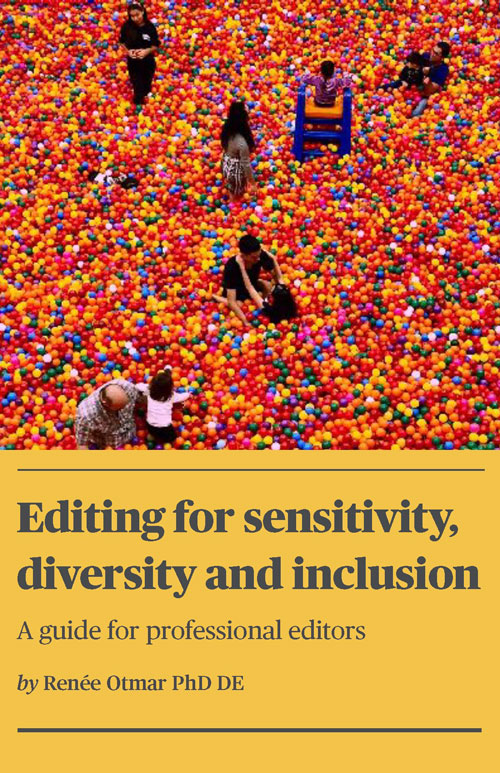Editing for sensitivity, diversity and inclusion: a guide for professional editors by Renée Otmar PhD DE
by Cassandra Wright-Dole
Editing for sensitivity, diversity and inclusion draws you into a sense of engaging in a dialogue with the author as she takes you through her journey as a young editor in a new country.
As you become immersed in the culture of Melbourne’s Little Saigon and ponder the socio-political attitudes of late 20th-century Australia, your social consciousness begins to awaken.
The distinct style of this book takes the work out of keeping up your professional development. Dr Otmar does not rush her readers into the process of examining the matters of sensitivity, diversity or inclusion. Diligently taking the time to explore how the role of the editor can intersect with such issues on an operational level, and the different relationships between stakeholders in the writing/publishing world, the author adopts the role of a trusted mentor. There is no sense of being on the receiving end of a technical lecture.
Before explaining the specific matters of sensitivity, diversity and inclusion, Dr Otmar delves into the process of understanding the underlying ideas that may present in writing and the basis on which they develop. From Marx to Foucault and theology to science, the reader can begin to understand the many factors that may contribute to unconscious attitudes or prejudice. These notions of bias are not limited to the writer or editor alone, but put it on the editor to acknowledge its presence and approach it from a place of kindness and awareness.
As the book begins to look at particular areas which require an understanding of how language can further entrench negative attitudes and alienate already vulnerable demographics, it becomes an excellent reference point for all. Although it is a guide, as opposed to a comprehensive textbook, Dr Otmar’s book provides a concise explanation and advice on how to navigate each issue with empathy. She then directs the reader to further resources so they can expand their knowledge as needed.
From the perspective of someone with postgraduate qualifications in human rights, and someone who lives with a disability, I can affirm that this guide is a valuable addition to any editor’s bookshelf.

